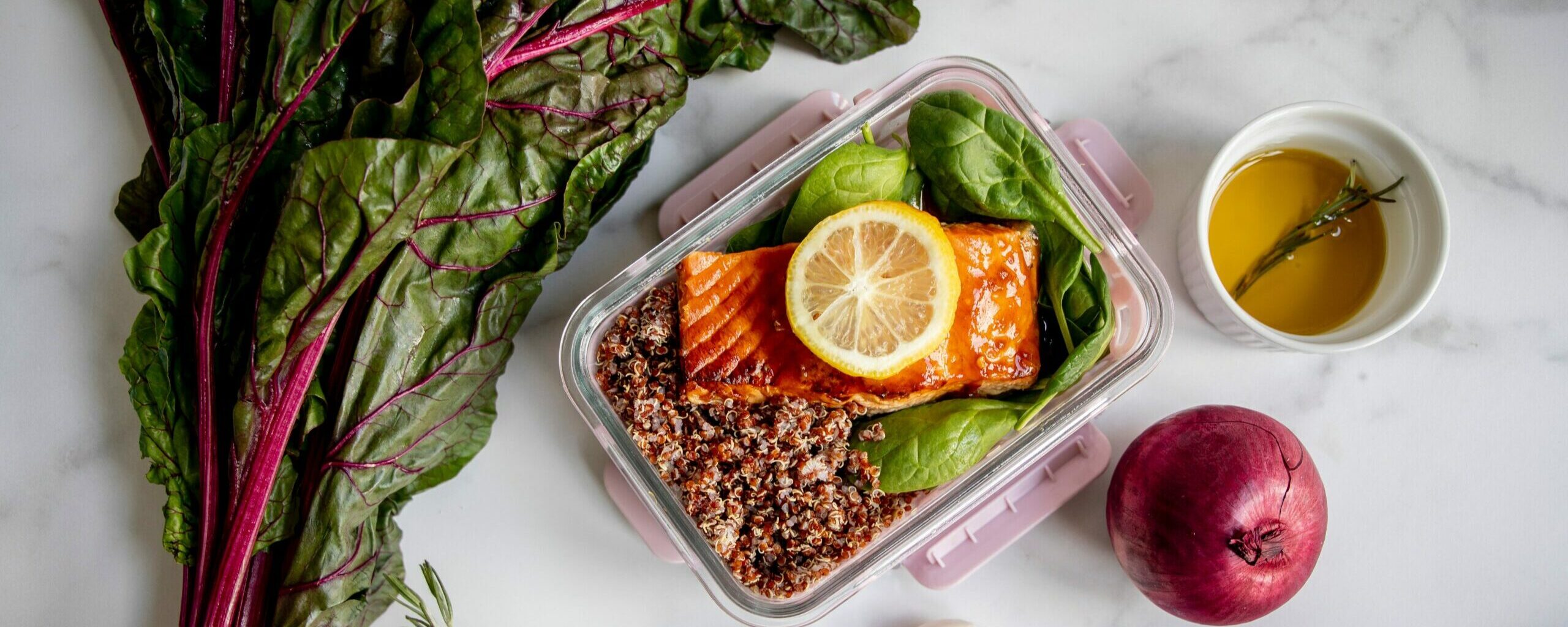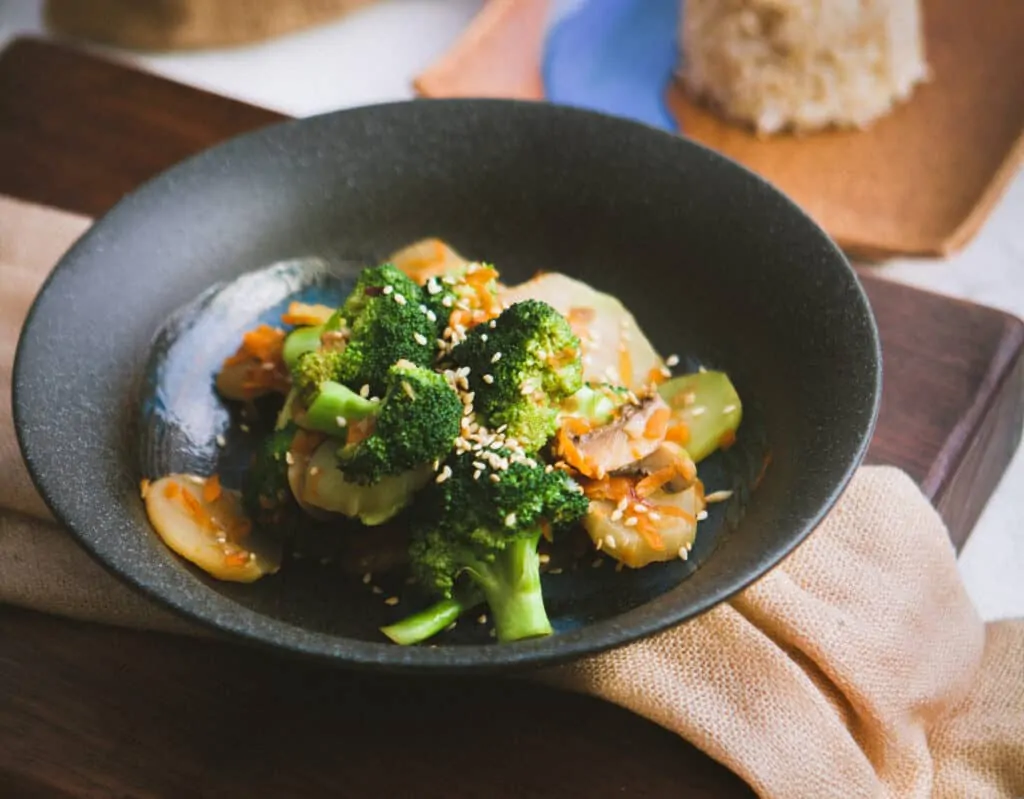
The question of questions: What should I eat to stay healthy, lean, strong, and energized?
It seems like this would have a simple answer (and truly, it does), but advertising and the barrage of “diets” we’re confronted with every day online and even on tv and billboards can easily muddy the waters of “what diet is best.”
Here we’ll go through exactly what you should focus on in your diet to attain ultimate health and provide your body with the most efficient fuel for, well, life.
You’ll notice this is a very holistic approach (as Nature tends to follow), and lacks many “extreme” views of diets. Here, nutrition and nature are key.
What Should You Eat? The Key Principles

1. Remove Excess Sugar
Processed and added sugar is one of the most unhealthy additions to our diets in modern history. Case in point: it has been linked to the development of diabetes, obesity, metabolic syndrome, behavioral problems, heart disease, chronic inflammation, cancer, and more. [*]
When it comes to weight gain especially, sugar is enemy number 1.
When you consume sugar, your body releases the hormone insulin in order to shuttle the glucose from your bloodstream and into your cells to be used for energy. However, this system is designed for the consumption of natural sugars (like those in whole fruits) that contain natural enzymes and fiber to help slow the release of sugar into your blood stream.
Processed sugars, like those found in bread, candy, etc … contain none of these fibers, resulting in a massive rush of sugar into your blood stream, followed by a huge release of insulin in response. Since this rush of sugar is more than your cells can use for fuel, the excess is quickly stored as fat before it can cause damage to your body.
If you continually eat sugar, this process is repeated and leads to an exhausted insulin response. Not to mention, your cells will begin to no longer respond to insulin and will start refusing to take in glucose, so all of the excess glucose (sugar) you eat is stored as fat. This is called “insulin resistance” and can rapidly lead to obesity.
Now, what do I mean by “sugar” here? Not just candy. All simple carbs are rapidly broken down into sugars, which is why you should greatly limit consuming the following:
• Candy and candy bars
• Bread, pastas, granola bars, muffins, cookies, etc … (unless these are made with almond or coconut flour and very little natural sugars, like honey)
• Fruit juices
• Sweetened yogurts
• All foods with added sugars on the ingredients list
Instead, if you have a sweet tooth, grab a square of dark chocolate, or indulge in some raw honey or (sparingly) maple syrup.
2. Focus on Nutrient Density
The saying, “As processing increases, nutrient density decreases,” rings with unavoidable truth.
The more a food is processed, the more it is stripped of its natural enzymes that assist digestion, the more fiber is removed (which helps reduce blood sugar spikes), and the more valuable nutrients are either damaged or lost.
This is why natural foods that are unprocessed have a high nutrient density – they have gone through less alterations.
Centering your meals around nutrient density is an easy way to focus on, well, the healthiest foods possible, such as vibrant fruits, vegetables, sweet potatoes, pumpkin, avocados, leafy greens, wild fatty fish, wild and organic meats and eggs, virgin coconut and olive oils, and nuts and seeds, accompanied by whole grains such as quinoa, brown rice, and beans like chickpeas and lentils.
This assures that with every meal, you’re getting the most nutrition per calorie, instead of eating “empty” calories, which can be found in processed foods like white breads, cookies, muffins, candy, etc …
In other words, you’ll make the most of your calories in every single meal.
3. Get Enough Protein
Now, when I say this, I don’t mean launching into eating an 8-ounce ribeye with every meal, or even a protein shake with every meal; I simply mean make sure you’re getting a decent amount of protein (4-6 ounces) with each meal (roughly the size of the palm of your hand). If you’re plant-based, this can come from organic tofu or beans.
Protein is the most satiating nutrient of the three macronutrients, which is why getting enough throughout the day is key, especially for weight loss.
Try this experiment for yourself: for one day, try eating 4-6 ounces of organic chicken breast with each meal and log your hunger levels throughout the day. The next day, substitute that protein for pasta (even whole grain) and log your hunger levels again. There is a high chance you’ll feel much more satiated on the day you ate more protein!
4. Quality Matters
You’ve probably noticed I’ve referenced “organic” many times throughout this piece, and this is for one simple reason: the quality of your food matters so much more than you think.
Studies show that organic fruits and vegetables, due to better growing conditions and soil, as well as lack of pesticides and other chemicals, contain more vitamins and minerals than non-organic fruits and vegetables. [*] This means that with organic food, your nutrient intake is even higher.
Not to mention, inorganic foods contain all types of toxic chemicals, pesticides, and genetically-modified organisms (many of which are banned in other countries) that have been linked to health problems.
The same goes for meats, fish, nuts, and oils: organic versions are free from dangerous hormones and herbicides that can disrupt your own endocrine system and hormones.
My key principle? Eat as close to nature as possible, as often as possible.
What to Eat: The List
• Organic fruits, including berries, citrus, melons, apples, figs, etc …
• Organic vegetables, like cabbage, carrots, bok choy, onions, broccoli, cauliflower, etc …
• Sweet potatoes and winter squashes like pumpkin and butternut
• Healthy fats like olive oil, coconut oil, nuts, seeds, and avocados
• Wild and organic meats like chicken, beef, turkey (organic tofu and beans if plant-based)
• Pasture-raised eggs
• Whole grains like quinoa and brown rice
• Beans
• Wild fatty fish, like salmon and sardines
• Organic dairy (sparingly)
• Non-dairy milks and unsweetened yogurt
• Spices and seasonings (sugar free)
• Raw honey, dark chocolate, and stevia
The Bottom Line
• Remove excess sugar
• Eat as close to nature as possible
• Buy organic/free range as often as possible
• Focus on nutrient density and avoid processed foods
• Consume protein with every meal
